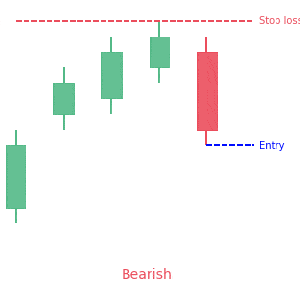Blue chip stocks vs. penny stocks is a good point to start learning about stocks and types of stocks. Additionally, learning about it also enables you to make good decisions, and that in turn gives good profit in stock trading. So, what are the differences between these two types of stocks, and which one is better for you?
In this article, we are going to explore blue chip stocks vs. penny stocks in detail. Therefore, keep reading because we are going to help you understand the differences between the two. Furthermore, you will also be able to choose which type of stock is better for your trading endeavor. Let’s begin right away.
Blue chip stocks vs. penny stocks
When looking to start your stock trading and investing endeavor, you may find yourself entangled in the blue chip stocks vs. penny stocks scenario. However, there is no need to feel overwhelmed. There are significant differences between these two types of stocks. Moreover, deciding where to invest your money is also easy when you know all about these types. Let’s discuss each type in detail.
Blue chip stocks
Blue chip stocks refer to stocks of highly successful companies. Such companies have a strong track record of success. Investors all across the globe highly trust blue chip stocks because such stocks are safe for investment. Therefore, if you want to invest in stocks while staying on the safe side, blue chip stocks are for you. However, blue chip stocks are expensive and may cost thousands per share. Microsoft, Apple, Facebook, etc. are household names among the wide list of blue chip stocks. You can invest in these stocks from all over the world through exchanges.
Penny stocks
On the flip side, penny stocks are stocks of new companies with little or no track record of success. That’s why these stocks are risky but they may offer huge returns. Moreover, penny stock prices are typically low and that’s why they suit investors with limited capital. Furthermore, penny stocks are traded only on over-the-counter or OTC markets. That means you can only buy or sell penny stocks through brokers dealing with penny stocks. You cannot invest in such stocks through stock exchanges.
Blue chip stocks vs. penny stocks – the differences
So, what are the major differences between blue chip stocks and penny stocks? Let’s see.
1. Capital requirements
As we have already mentioned, blue chip stocks are expensive and require a huge amount of capital. Contrarily, penny stocks are low-priced stocks. You can even buy a penny stock for one cent. So, if you have limited capital, penny stocks suit you. However, penny stocks are risky and you should conduct thorough research before investing.
2. Risk
Blue chip stocks are stocks of highly successful companies with a long history of success. Such companies are stable and also have great financial health. That makes them less risky as compared to penny stocks. Penny stocks are stocks of new companies and are, therefore, risky. However, penny stocks can reward you with higher returns.
3. Long-term vs. short term
As blue chip stocks are safe for investment, they are the first choice of long-term investors. They offer low risk and are stable for long-term investment. On the other hand, penny stocks are risky but offer higher returns. Therefore, short-term investors prefer penny stocks.
Blue chip stocks vs. penny stocks – which one is better for you?
It depends on your investment goals whether blue chip stocks are better for you or penny stocks. Additionally, it also depends on your risk tolerance level. If you want to stay on the safe side, blue chip stocks are better for you. However, you need a higher capital amount and will get fewer returns on your investment. Contrarily, if you want to take the risk for higher returns, penny stocks are better for you. However, it is important to note that you should do your own research before investing in any type of stock.
 Good Trading requires the Best Charting Tool!
Good Trading requires the Best Charting Tool!

 We loved Marwood Research’s course “Candlestick Analysis For Professional Traders“. Do you want to follow a great video course and deep dive into 26 candlestick patterns (and compare their success rates)? Then make sure to check this course!
We loved Marwood Research’s course “Candlestick Analysis For Professional Traders“. Do you want to follow a great video course and deep dive into 26 candlestick patterns (and compare their success rates)? Then make sure to check this course!